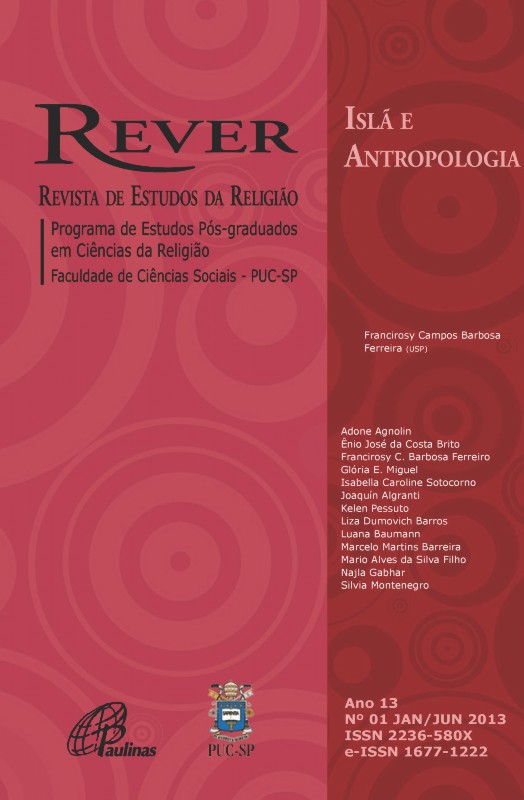Sufism: the relevance of the islamic mystics for the historic evolution of islam
Keywords:
Islam, Sufism, Mystic, Esotericism, MysticismAbstract
Ascetic and mystical elements implicitly present within Islam since its beginning became explicit during the first two centuries of its history (VII andVIII AD). It as the time in which the first Muslim devotees founded communities in of what is now Iraq, Syria and Iran. In the twelfth century these communities began to spread and formed new social institutions (orders). Until the beginning of the 20th century, Islamic mysticism (Tasawwuf in Arabic) – or Sufism as it is known in the West - had great influence on the spiritual, intellectual and social life of Muslims. The article summarizes the origin, nature and goals of this religious current.Metrics
Metrics Loading ...
Downloads
Published
2013-06-30
How to Cite
Filho, M. A. da S. (2013). Sufism: the relevance of the islamic mystics for the historic evolution of islam. REVER: Journal for the Study of Religion, 13(1), 63–83. Retrieved from https://revistas.pucsp.br/index.php/rever/article/view/16127
Issue
Section
Seção Temática
License

This work is licensed under a Creative Commons Attribution-NonCommercial 4.0 International License.
Authors who publish in this journal agree with the following terms:- Authors retain copyright, but grant the journal the right of first publication, with the work simultaneously licensed under the Creative Commons BY-NC License.
- Authors are authorized to assume additional contracts separately, for non-exclusive distribution of the work published in this journal (e.g., publishing in an institutional repository or as a book chapter), as long as with acknowledgment of authorship and first publication in this journal.


